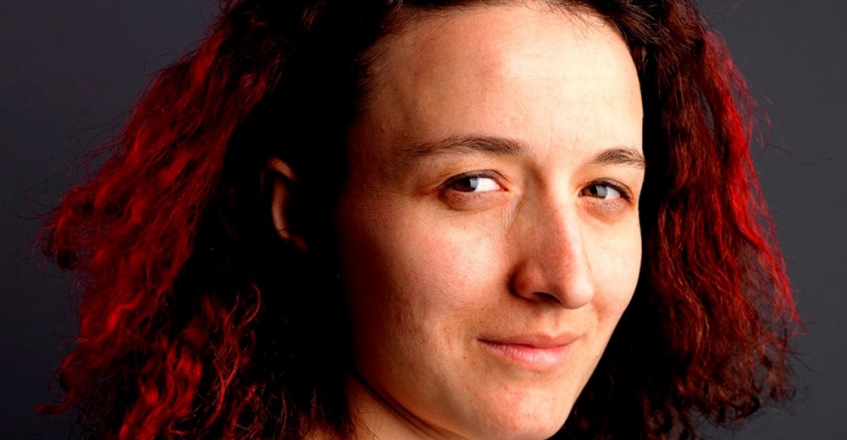Objave
Mariam Bakacho Khatchvani: No woman here has ever succeeded in claiming an inheritance
Mariam Bakacho Khatchvani graduated from the Shota Rustaveli Theatre and Film University in 2008. . Her short film DINOLA was screened at over 300 festivals, including the Clermont-Ferrand International Short Film Festival, and was nominated for a European Film Award.
Mariam Bakacho Khatchvani graduated from the Shota Rustaveli Theatre and Film University in 2008. . Her short film DINOLA was screened at over 300 festivals, including the Clermont-Ferrand International Short Film Festival, and was nominated for a European Film Award. DEDE, er debut feature-length film, won the Jury Prize at the Karlovy Vary International Film Festival and received the UNESCO Award at the Asia Pacific Screen Awards. THE MEN'S LAND, her most recent short documentary, had its premiere in the Official Selection of Visions du Réel in 2025 and at the 31st Sarajevo Film Festival it is being screened in the Competition Program - documentary film.
Your film deals with the ancient Georgian tradition that female children are not entitled to family inheritance even when they cannot provide for themselves otherwise. How did the residents of Ushguli Mountain react when you expressed your intention to make a film about it?
Yes, from my perspective, this problem runs deeper than just inheritance. This kind of attitude plants a complex in girls from childhood, making them feel they are not as important to the family as men. In this region, the birth of a boy is celebrated more than that of a girl. A family without a son is often called “doomed,” and men will sometimes say they have “two children and two girls,” as if the girls do not count. These complexes follow women from childhood and shape their entire lives. In my view, the years spent in childhood influence the whole course of life. When women marry with such complexes, they often struggle to establish themselves in their husband’s family, and in many cases, they cannot even leave an abusive husband because they have nowhere to go.
I was born and raised in Ushguli. Fortunately for me, the women of my family have always been considered very strong. For centuries, Ushguli has been free of feudal lords, because every time someone tried to rule over it, the locals would kill them. In one case, when a lord named Puta was killed in Ushguli, it was the women of the Khachvani family who killed his companions. That’s why Khachvani women have always been considered strong—and maybe even a little crazy. So, in our family, gender equality has been less violated—except when it comes to inheritance. Like all women here, I am not entitled to any property in Ushguli, but I am still grateful to my family for never discriminating against me because I am a woman. My twin sister and I have two brothers, and my father always emphasized that he loved us girls just as much as the boys and never treated us differently. This played a very positive role in my life and spared me from the childhood complexes many women in Svaneti experience. Because I never had those complexes, I face any problem here with confidence and speak openly with the locals. So, even though people may look at me with some scepticism when I start filming—since most of my films are about women’s issues—I still enjoy a great deal of trust from the community. They are more open with me and willing to participate in my films. If you ask me, men here actually like strong women, so we should be stronger, not oppressed—and that benefits everyone.
While you were filming Anna's conversation about her right to the property with her relative, we only see her. Did her cousin not want you to record the face-to-face conversation or was it your choice?
As for the scene with the protagonist’s cousin, that young man, besides being her cousin, is also my cousin, because Ushguli is a small village and we are all related in some way. He agreed to speak in front of the camera, but I chose not to show him, because for me it didn’t matter who was behind the camera. By doing so, I wanted to show that all men think that way, just like her cousin—it’s not only his personal opinion. The important thing was that off-screen, you could hear a man’s voice—the voice of men from Svaneti.
Anna seems strong and determined in her plan to keep the property. To your knowledge, has her fight moved on from the deadlock after the film?
No woman here has ever succeeded in claiming an inheritance, no matter how much she wanted it, and that’s why the film ends the same way reality does.






